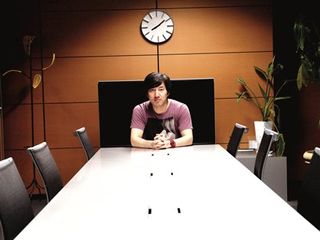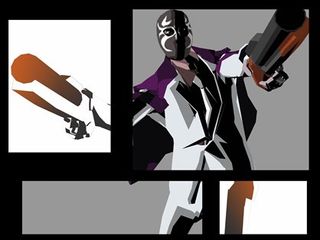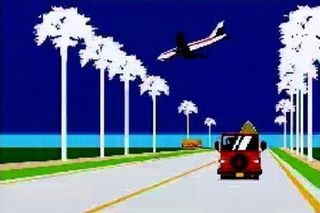Suda51 is the man behind some of the maddest games to grace the industry, including Killer7 and the No More Heroes series. He’s the closest thing the industry has to a rock star, and when we interviewed him recently, we asked him to tell us 51 things that we wouldn’t know about him and No More Heroes 2: Desperate Struggle. This is what he revealed…

He was born in Japan’s Nagano prefecture.
“It was a beautiful place surrounded by mountains and snow.”
He hated it.
“Since I was little I was always thinking about escaping.”
He doesn’t have any sisters.
He’s not particularly close to his family.
“When I moved to Tokyo, I didn’t have any relatives or anything. I left my family behind to follow my dreams of making games. I stay away from my family – although now I have my own family. Make sure you mention how much I love my wife!”

It took him ages to get into the games industry.
He had dozens of jobs before he broke into the world of gaming employment at the age of 24. Immediately before getting his first gaming job, making wrestling titles for Human Entertainment, he was working as an undertaker, which he hated.
Being an undertaker made him think about how he portrays death in games.
“I’m probably one of the few game developers that’s actually seen a dead body! I’ve always wanted people to experience death in my games in a powerful way.”
He’s a huge wrestling fan.
“I started out writing wrestling games. I felt that no one else knew as much about wrestling as I did, which gave me a lot of confidence.”

Suda was a shoegazer.
When working on his first game, Super Fire Pro Wrestling 3: Final Bout, he obsessively listened to the ten-minute-long song Grasshopper by Oxford indie band Ride.
“I’d work till midnight, listening to that song on repeat. That’s why I eventually named my own studio Grasshopper Manufacture, because things only got made thanks to that song!”
He struggled to get people to listen to his ideas at first.
“I was 24, the other people in the team were also very young, so we found it difficult to get our bosses to listen to our ideas. After I had some success, it became easier. My knowledge eventually convinced people to trust me.”

He wanted to celebrate his first game sale with a hug.
“When my first game hit the shops, it felt unbelievable. On release day I stayed in the games shop all day. When people were checking out the game on the shelf, I was standing behind them, almost whispering ‘Buy it, buy it, buy it…’. When someone finally did, I wanted to hug them. Of course, culturally, you can’t really do that in Japan, but I really wanted to follow them home and give them a big hug. I was so happy.”
